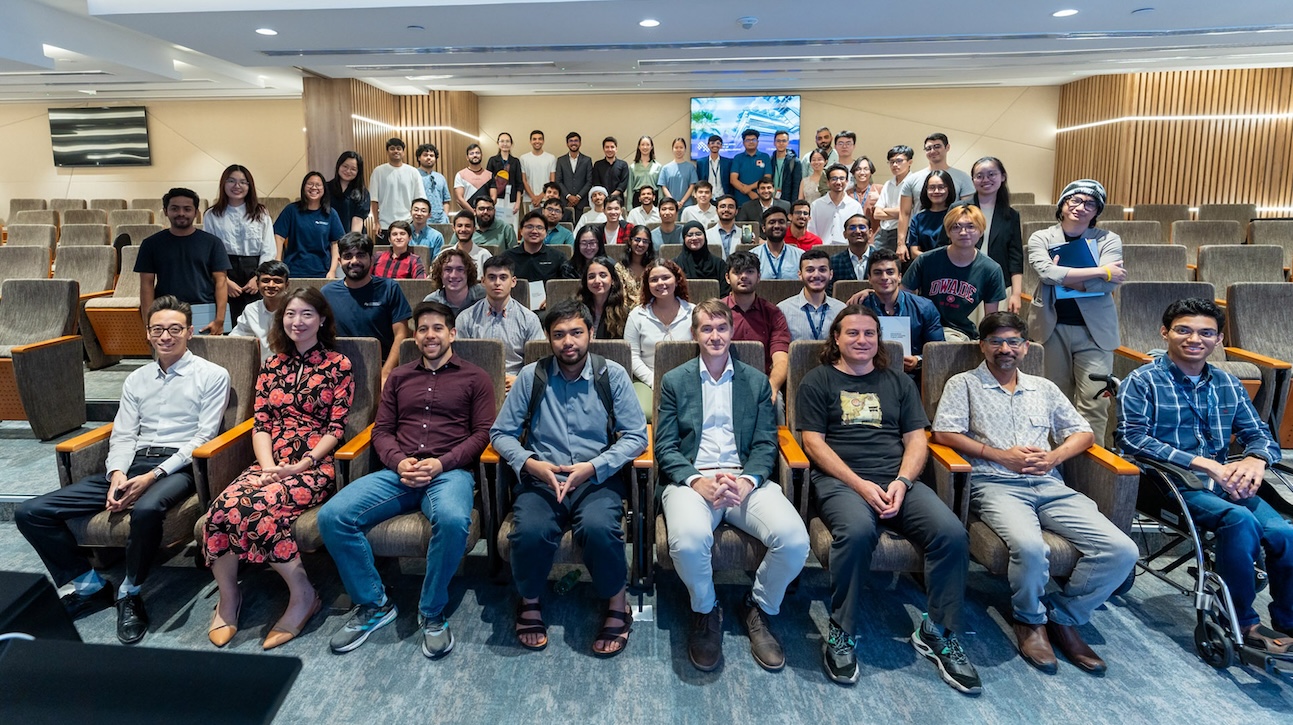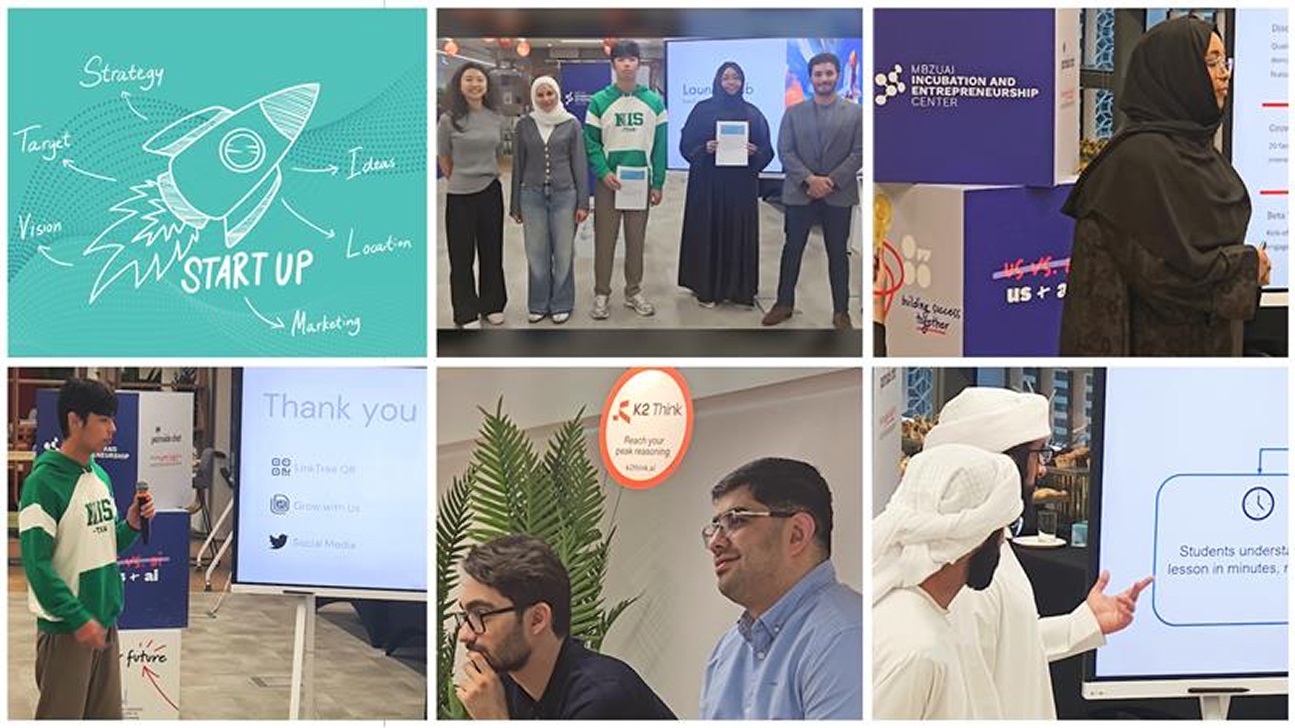MBZUAI welcomes largest-ever cohort to its undergraduate artificial intelligence research internship
45 international STEM students exposed to cutting-edge AI research and world-leading faculty in month-long program in Abu Dhabi
Monday, July 01, 2024
Forty-five international STEM students have been exposed to cutting-edge artificial intelligence (AI) research and world-leading faculty as part of a month-long undergraduate internship at the Mohamed bin Zayed University of Artificial Intelligence (MBZUAI) in Abu Dhabi.
A rigorous selection process was undertaken for the second edition of the Undergraduate Research Internship Program (UGRIP), which is a four-week program for top-flight undergraduate students to develop foundational AI knowledge and hands-on research skills.
The university’s growing reputation as a hub for quality AI research and publishing at top conferences attracted applications from around the world including the US, Canada, Australia, United Arab Emirates, Colombia, Vietnam, India, Egypt, South Korea, and Kazakhstan. Many of the aspiring researchers are from leading global computer science universities including IIT Madras, Harvard University, Yale University, Johns Hopkins University, Pontificia Universidad Católica de Chile, Vietnam National University HCM City, and Australian National University.
“A core part of MBZUAI’s mission is to identify and nurture the next generation of innovators and leaders in AI, and the 32% growth of UGRIP in just its second year shows the increasing prominence of our university globally and the attractiveness of studying in UAE,” MBZUAI’s Provost, Professor Timothy Baldwin, said. “The UGRIP students had the unique opportunity to work alongside our world-leading faculty on real-world AI research problems with global impact, in areas including health and bioinformatics, robotics, and the use of large language models to detect machine-generated text.”
The UGRIP interns chose from a range of AI research projects based on their personal interests, and academic and career aspirations. The projects including developing a metaverse prototype for digital healthcare, enhancing the accuracy and robustness of baby cry analysis models using AI; and systematically evaluating the generalizability of large language models across languages and tasks.
“I applied because I wanted to study Arabic and artificial intelligence,” visiting student Ben Lambright, who studies computational linguistics and Arabic at Brandeis University in the US, said. “My focus was to learn more about multimodal models for Arabic and English. This was an interesting opportunity for me to study with researchers from around the world and to collaborate with them.”
Interns also participated in a brain tumor segmentation challenge, which used computer vision techniques to detect tumors in medical images and had the opportunity to engage in an insightful industry panel discussion about the UAE’s AI sector and job market.
To complement their research and interactions with MBZUAI’s expert faculty, the UGRIP interns also experienced the UAE’s rich history and culture through a series of cultural trips facilitated by Abu Dhabi Residents Office (ADRO) and the Department of Culture and Tourism – Abu Dhabi (DCT) to places such as Qasr Al Hosn, Sheik Zayed Grand Mosque, and Abrahamic Family House.
Undergraduates interested in internships with MBZUAI, can find more information at https://mbzuai.ac.ae/ugrip/.
- STEM ,
- ugrip ,
- AI research ,
- innovators ,
- ADRO ,
- DCT ,
Related
MBZUAI's Launch Lab equips alumni and students with practical startup tools
The six-week pilot program brought alumni and students together to turn early startup ideas into tangible ventures.
- alumni relations ,
- launch lab ,
- startups ,
- alumni ,
- entrepreneurship ,
Designing the human side of AI
MBZUAI’s inaugural HCI Symposium explored how people will live and work alongside AI, and how to ensure.....
Read MoreYoungest MBZUAI student sets sights on AI superintelligence at just 17
Brandon Adebayo joined the University’s inaugural undergraduate cohort, driven by a passion for reasoning, research, and the.....
- Undergraduate ,
- student ,
- engineering ,


